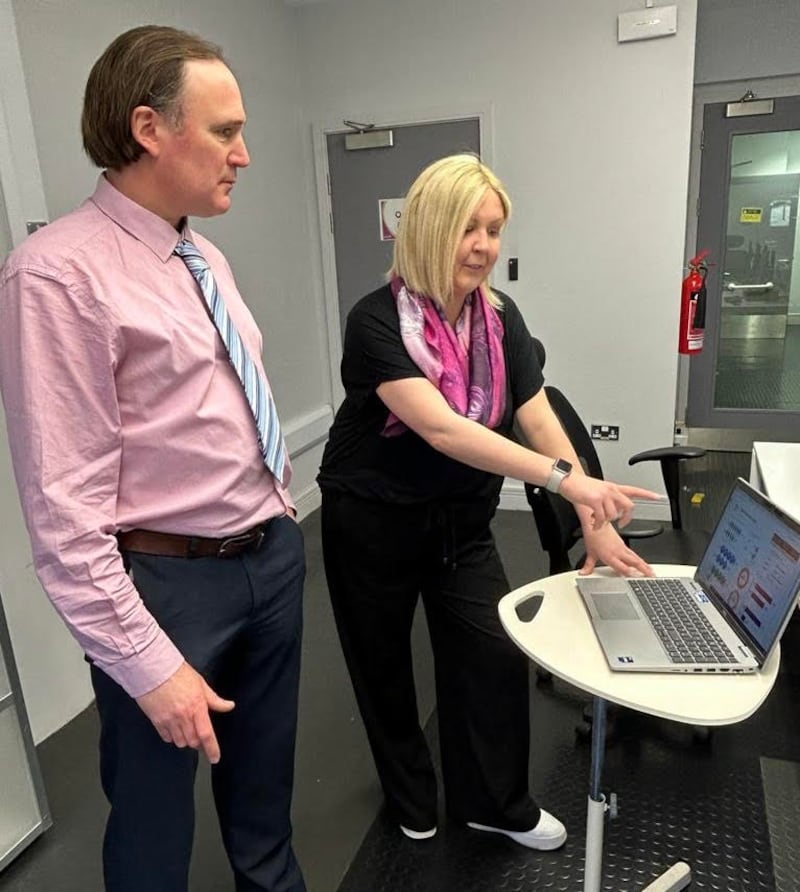When I think of the coronavirus, I think of a slimy octopus with its tentacles stretching into every area of life. Over those three-plus years and ever since we were all affected in some way or another, and the thought is there’ll be another octopus along sometime in the future.
That means it’s important to examine what has gone before and to explore Covid’s likely legacy. That requires research, talking to people who have experienced direct or indirect effects, making comparisons and collating the results.
Sitting with the team convinced me that this is a vitally important piece of work which is designed to help men and women today and, even more importantly, our children in the future. For them alone I believe it’s essential that we offer our cooperation
That’s just what is being done through a Queen’s University survey specifically featuring breast cancer; and if you have had such a diagnosis, especially in the last four years, you are asked to make contact and help the researchers build up a picture for women and men in the future.
Men? Yes - men too have breast tissue and although breast cancer is rare - below the age of 75 it is one in 1,349, after that one in 714 - it’s still important for boys to check their breasts just in case they are among that low percentage.
One man who responded advised: “Don’t be embarrassed to come forward - but do you have to use pink on all literature?”
Statistics show one in 10 women will have this diagnosis before they are 75 and one in eight by age 85. I know personally how frightening this is but I also know the advances in detection and treatment since my own experience 24 years ago. So even I am a candidate for the survey.
I remember the breast care nurse telling me even if I got a pain in my left ear lobe I’d think it was cancer, and it wouldn’t be; she was right. We were sitting on the bed in the City Hospital and she was asking me if I wanted her to take the dressing off my wound; I told her I’d already done it.
“What was your reaction?” she asked. “I was horrified when I looked down and saw how many tummies I had...”
We’d a good laugh and it broke the tension and allowed me to talk about my feelings. And that’s what this survey is looking for - experiences and reactions.
What A Privilege
Thanks to the internet, researchers have been able to invite cooperation from around the world and although they only launched their international research in September they’ve had a good response, including from the United States. Please consider responding now as the survey is coming towards its conclusion...
Based in Queen’s Mulhouse building at the Royal Victoria Hospital, a team of 20 working in the NI Cancer Registry (NICR) are collating information on all cancers but for this study a dedicated team is examining breast cancer. They are appealing especially to those who have experienced the full impact of the Covid-19 pandemic and how it has affected breast cancer services.
Dr Damien Bennett, NICR director, says: “Although we don’t know the full impact of the Covid-19 pandemic on cancer services and patients, we know that treatment and screenings were disrupted.”
Principal investigator for the audit, Professor Anna Gavin, added that the survey will enable the team to build an accurate and detailed picture: “By harnessing the voices of breast cancer patients we can learn from their experiences and help improve cancer services and care both now and in the future.”

This research, which is funded by Breast Cancer Now in partnership with the Centre of Public Health at Queen’s, winds up at the end of February so if you can help with your own information, in total confidence, please get in touch.
Sitting with members of the team convinced me that this is a vitally important piece of work which is designed to help men and women today and, even more importantly, our children in the future. For them alone I believe it’s essential that we offer our cooperation.
How Was It For You?
The survey will provide individual perspectives and personal experience of people diagnosed before, during and after Covid-19. Researchers will assess the number of and impact on breast cancer patients who were admitted to hospital with Covid-19, the importance of face-to-face meetings when giving a diagnosis, how Zoom and telephone contacts worked, best practice for vulnerable people or those with sight impairment or hearing difficulties; the administration of treatment such as radiotherapy perhaps resulting a change in dosage and the number of treatments to avoid attending hospital and the fact that reconstruction operations were paused; how diagnosis impinged on relationships, the fear and anxiety experienced and the feeling of isolation if you choose not to confide in family or friends.






